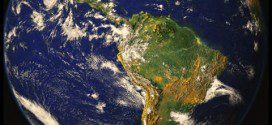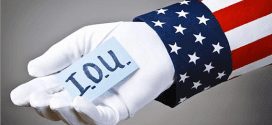Canada is seen as the new banking safe haven and an “island of safety and stability” because of its perceived sound fiscal position, commodity wealth and solid economic performance – but it’s a myth! Plain & simple. Here are the facts.
because of its perceived sound fiscal position, commodity wealth and solid economic performance – but it’s a myth! Plain & simple. Here are the facts.
The above introductory comments are edited excerpts from an article* by Simon Black (sovereignman.com) entitled Presenting the most pitifully capitalized central bank in the West [Hint: It’s NOT the Fed].
The following article is presented by Lorimer Wilson, editor of www.munKNEE.com (Your Key to Making Money!), www.FinancialArticleSummariesToday.com (A site for sore eyes and inquisitive minds) and the FREE Market Intelligence Report newsletter (register here; sample here). This paragraph must be included in any article re-posting to avoid copyright infringement.
Black goes on to say in further edited excerpts:
As the world’s top central bankers gathered at their annual jamboree recently, the governor of Bank of Canada, Stephen Poloz, undoubtedly received envious comments from his fellow money magicians for Canada’s perceived status as a global financial safe haven.
This newly found perception was perhaps best exemplified during a Bloomberg interview, when the CEO of RBC Wealth Management – the biggest financial institution in Canada said that “Canada is what Switzerland was 20 years ago, and the banks in Canada are what Swiss banks were 20 years ago.”
This is the new flavor of Kool-Aid. Canada is seen as the new banking safe haven and an “island of safety and stability” because of its perceived sound fiscal position, commodity wealth and solid economic performance.
Now, anytime I see central bankers slapping each other on the back, I’m going to be skeptical. But here at Sovereign Man, our conclusions are all data driven… so we dove into the numbers.
First, the Big Daddy himself—Canada’s central bank.
Weak Balance Sheet
Any strong, healthy banking system requires a central bank with a pristine balance sheet… specifically, substantial net equity as a percentage of assets. So how strong is the balance sheet for Bank of Canada? Not very.
As it turns out, Bank of Canada is actually the most pitifully capitalized central bank in the western world. They’re in such bad shape they actually make the Fed look healthy.
Hong Kong’s Monetary Authority Exchange Fund is a good example of a strong balance sheet; their latest figures, as of 30 June, show a whopping capital reserve equal to nearly 22% of total assets – which is a massive margin of safety for the central bank.
The US Federal Reserve, on the other hand, shows a capital reserve of just 1.27% while Canada shows a tiny 0.47%... as in less than one half of one percent. This isn’t safety and stability. It’s a rounding error.
Zero Reserve Requirements
Moreover, Canada also has ZERO reserve requirements for its banks; this means that Canadian banks are not obliged to hold any of their customers’ deposits so, yes, it’s legally permissible for a Canadian bank to loan out 100% of its customers’ funds.
Not to worry, though. The Canadian Deposit Insurance Corporation (CDIC) is standing by to insure bank deposits up to $100,000, but when you look at it closely, there isn’t much there for depositors at all. There’s roughly $646 billion of eligible deposits in the Canadian banking system yet the CDIC only has $2.8 billion in cash available to insure it all… a ratio of just 0.43%.
Enacted “Bail-in” Legislation
Even more troubling is that Canada has legislated an actual Cyprus-style confiscation of deposits in the event that Canadian banks deplete their capital.
Buried deep into the government’s Economic Action Plan 2013 is a provision that would implement a “bail-in” regime for “systemically important banks” which would legally allow the banks to tap into customer deposits if the banks get into trouble… something I don’t find particularly safe.
Almost NO Gold Reserves
Last, the Canada myth really starts to become apparent when you look at the country’s gold reserves.
At the beginning of this century Canada held 46.19 tonnes of gold. Now they hold only 2.99 tonnes. That’s a whopping 93.5% decline in gold reserves in just over a decade!
In other words, Canada’s monetary leadership has made a conscious decision to reject real assets in favor of paper assets that can be conjured out of thin air. They’ve managed to run their central bank into borderline insolvency.
Conclusion
It’s important to look at facts and not rely on sentiment and to anyone who rationally looks at the data, the obvious conclusion is that Canada is certainly NOT the safe-haven it’s been built up to be.
Editor’s Note: The author’s views and conclusions in the above article are unaltered and no personal comments have been included to maintain the integrity of the original post. Furthermore, the views, conclusions and any recommendations offered in this article are not to be construed as an endorsement of such by the editor.
*http://us7.campaign-archive1.com/?u=6043f7810362a545dc3f006f0&id=aee3cb3e5f&e=cde4d09321 (Copyright © 2014 BlackSmith PTE. LTD., All rights reserved.)
If you liked this article then “Follow the munKNEE” & get each new post via
- Our Newsletter (sample here)
- Twitter (#munknee)
Related Articles:
1. Canada’s Top Commodity Exports/Imports & How to Invest Accordingly
Canada has the 7th largest economy in the world and is the 2nd largest country by land mass. It has a wealth of natural resources, making it a large energy and minerals exporter. For commodity traders looking to invest primarily in North America, Canada presents a compelling opportunity. [This article takes a look at Canada’s top commodity exports and imports and offers suggestions as how to invest in Canada’s commodity industry.] Words: 905 Read More »
2. Next Crisis Will Start In Either Canada, Australia, the U.K or ?? – Here’s Why
The plunge in emerging markets that started this year has given us the Fragile Five (Indonesia, South Africa, Brazil, Turkey and India), courtesy of Morgan Stanley, because their big current-account deficits mean they are acutely vulnerable to a sudden exit of foreign capital. The trouble is, it isn’t true. The next crisis will start, as did the last one, in one of the developed economies [and this time round] it is likely to come from one of these 5 countries:… Read More »
3. Canada’s Housing World’s Most OverValued – Where Does Your Country Rank?
Canada’s housing market is the most expensive in the world – 60% overvalued by historical standards – and one simple reason explains it. Read More »
4. Do You Actually Own “Your” Gold Given What’s Happened in Cyprus & Proposed In Canada/E.U.?
To believe that governments…[won’t confiscate your] gold to help support their national finances… would be naïve, especially in light of past and recent events. That’s why it is now incumbent on all investors to look at the meaning of ownership in investing and investors’ vulnerability to government confiscation as well as vulnerability to exchange and capital controls. We do this below. Read More »
5. Canada & the European Union Are Proposing Cyprus-style “Bail-ins” for Their Too-Big-To-Fail Banks!
The politicians of the western world are coming after your bank accounts. Cyprus-style “bail-ins…for systemically important banks” are actually proposed on pages 144 and 145 of “Economic Action Plan 2013” in the new Canadian government budget and it is being reported that the European Parliament will soon be voting on a law which would require that large banks be “bailed in” when they fail. …I can’t even begin to describe how serious all of this is. So exactly what in the world is going on here? Words: 1075 Read More »
A number of factors don’t bode well for Canada’s economic expansion in the near-term and for the valuation of the Canadian dollar in particular. GDP growth in 2012 was down to 1.8% from 2.6% the previous year. The nation’s central bank is holding the overnight rate at 1% and will likely maintain this level for some time to come. Words: 440; Charts: 7 Read More »
7. Bank of Canada Report Suggests Economic Situation is Dire and Could Deteriorate Rapidly!
One typically doesn’t look to government bureaucracies to receive hard-nosed, objective discussions on the economy so you can magine my surprise when the latest Financial System Review, published semi-annually by the Bank of Canada, landed in my inbox and I discovered that it contained a very sobering look at Canada’s economy and the many systemic risks the country is facing! It’s not surprising that this report was not picked up by the main stream news, because if they did the popular opinion of Canada’s invincible, recession-proof economy might begin to crumble. [Let me explain.] Words: 2400 Read More »
8. Canadian Economy Still Strong But Setting Itself Up For a Very Hard Fall! Here’s Why
9. Canadian Debt-to-Income Ratio Has Entered the Danger Zone! Is a Housing Crash Imminent?
The Canadian ratio of debt to income hit 163.4% in the second quarter, up from 161.7% at the end of last year, according to figures released Monday by Statistics Canada. That’s the highest ratio of debt to income ever recorded in Canada, and more inflated than the levels witnessed in the U.S. and Britain before their housing market collapses in the mid-2000s. Words: 625 Read More »
10. The 10 Strongest Banks In the World Are….
Below is a list of the 10 strongest banks around the world according to Bloomberg Markets magazine. One country has 4 such banks. Another has 3. Then there are three countries with one bank each in the top ten. Guess which countries are on the list and with the strongest banking systems overall? Read More »
 munKNEE.com Your Key to Making Money
munKNEE.com Your Key to Making Money



Canada has had only 1 bank failure in the HISTORY of the country. 1 bank. It is the best managed, safest, stable economy in the world.
Our Government is running a surplus now — not debt financing — surplus each quarter.
Enough said.